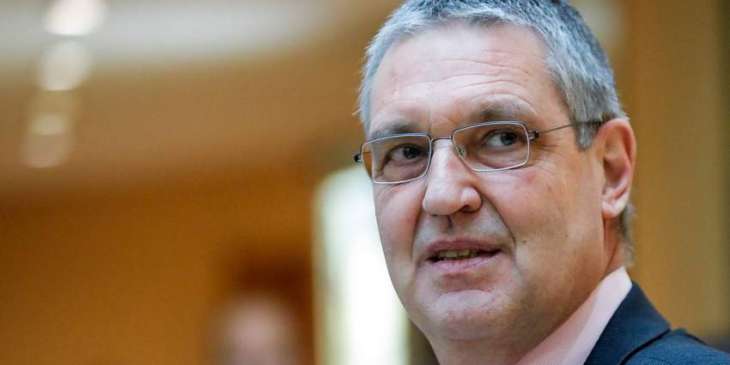The European Union is grateful to Moscow for helping Italy during the coronavirus crisis, but the recent reports on alleged Russian disinformation aimed at discrediting some EU member states puts the country's seeming act of solidarity into question, Markus Ederer, the EU ambassador to Russia, told RIA Novosti
MOSCOW (Pakistan Point News / Sputnik - 02nd April, 2020) The European Union is grateful to Moscow for helping Italy during the coronavirus crisis, but the recent reports on alleged Russian disinformation aimed at discrediting some EU member states puts the country's seeming act of solidarity into question, Markus Ederer, the EU ambassador to Russia, told RIA Novosti.
Following talks between Russian President Vladimir Putin and Italian Prime Minister Giuseppe Conte in March, the Russian military sent 15 aircraft and dozens of specialists to Italy, the European nation most affected by COVID-19, along with disinfection and diagnostic equipment. Conte thanked Putin for the medical supplies in a telephone conversation on March 21, and Italian Foreign Minister Luigi Di Maio personally came to meet the aircraft and express gratitude to Russia. The sentiment was echoed by the Italian ambassador to Moscow, a representative of the General Staff of the Italian armed forces and many other officials.
"The EU is grateful for any sincere expression of solidarity in this particular crisis and even more so for member states which have been affected very much. And the Russian initiative in Italy has possibly been conceived as one of those acts of solidarity," Ederer said.
The diplomat added even though the initiative was greeted by the EU, it was tainted by an alleged Russian disinformation campaign. The official specifically mentioned Russian lawmaker Aleksey Pushkov's statement suggesting that one of the Italy-bound Russian aircraft had to make a detour after being denied entry into Polish airspace. The claim has been refuted by Polish officials.
"Whatever good intentions behind that initiative, I would also say that it was tainted by disinformation and fake news. I gave one example of Poland being falsely accused of having blocked [Russian plane's] overflight and therefore, for these reasons, media and others in the EU started asking or questioning the noble motives behind this aid and there is discussion now ongoing on the geopolitics of generosity and mask diplomacy and some even speak of masked diplomacy," Ederer said.
The ambassador went on to say that the international community should fight the coronavirus and not each other's truths.
Last week, Jacopo Iacoboni, a journalist with the Italian La Stampa newspaper, stated in an article that the agreement between Conte and Putin could have been geopolitical in nature, with the Italian prime minister agreeing to accept the assistance in order to strengthen personal and political relations with Moscow, and the Russian president using the deal as an opportunity to play some role in the situation in Italy. Other Western media, including the UK's Guardian and the Telegraph, held similar opinions. Commenting on this, Kremlin spokesman Dmitry Peskov, had said that the Russophobic obsession in the West continued even in times of a pandemic




